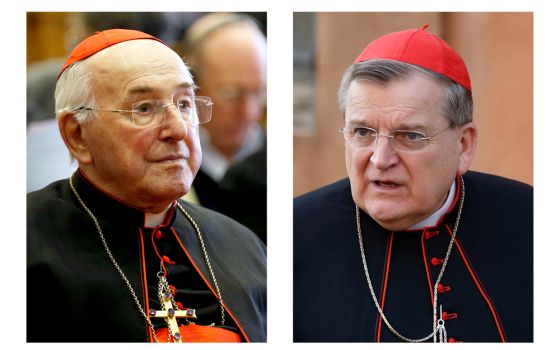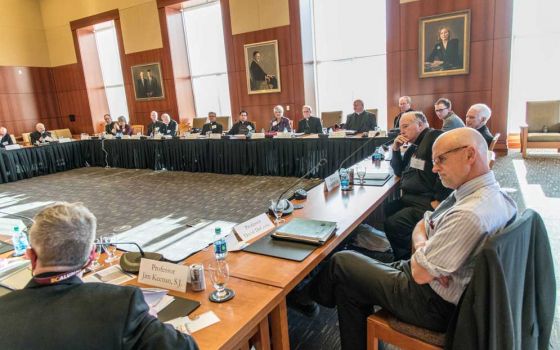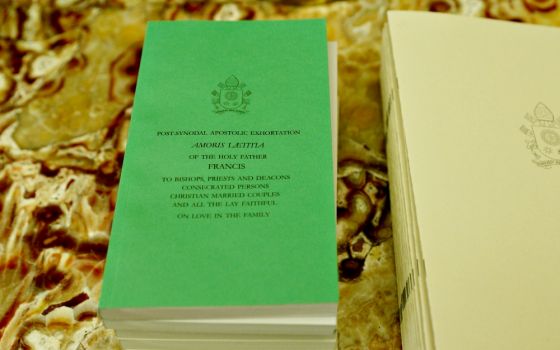Amoris Laetitia, the much anticipated apostolic exhortation written by Pope Francis in response to the synod on the family, will be released Friday morning. The Latin title translates in English as “The Joy of Love.”
Here are six things to look for when the exhortation is published.
First, remember that most Catholics live in the global South, so what does this document say to them? Is the exhortation concerned only about European and North American issues, or does it have something to say to the millions of Catholics in the South.
In Africa, for example, the church has been struggling to figure out how to mesh the sacramental life of the church, especially marriage, with African traditions.
Thus, while the West, following Roman law, sees marriage as a legal contract between a man and a woman that takes place when the words of consent are spoken, in Africa, marriage is often an agreement involving two families that takes place gradually over time. There is no magic moment.
Since Francis is the first pope from the global South, you can be certain that the people of the South were in his thoughts as he wrote the exhortation.
Second, what does the exhortation say about families suffering from poverty and marginalization?
Love is supposed to conquer all, but poverty, war, and forced migration are obstacles that make family life very difficult if not almost impossible. This is a reality for too many families.
When a Salvadoran father has to leave his family for years to find work in the United States, when Asian and African refugees are forced to move from their homes because of civil conflict, how can we expect family life to prosper?
In his encyclical Laudato Si’, Pope Francis condemned the economic and political causes of environmental pollution; don’t be surprised if he points out how capitalism and globalization have been bad for families. Families where the father is unemployed have a difficult time surviving. He will want government action to support families.
Third, look for a pastoral tone.
Pope Francis’ first two major documents, Evangelii Gaudium and Laudato Si’, were remarkable for their readability and their pastoral tone. He does not speak in abstractions. Nor does he nag. While he will not change church teaching, this exhortation will not read like the marriage section of The Catechism of the Catholic Church.
Fourth, how does he speak about women?
Francis has frequently stumbled in speaking about women. He is unfamiliar with the language and issues of first-world feminists. Did he get any help on this or will he continue to use the language of John Paul and sound like a loving but benighted grandfather?
Fifth, what will he say and not say about birth control?
Pope Francis has made clear his hesitancy about changing church teaching, but neither does he want to obsess over issues like this.
Under a different papacy, there would be a whole chapter devoted to defending the church’s teaching against artificial birth control. Francis is more likely to encourage confessors to be patient and compassionate with those who find the teaching difficult to observe. This is a case of less is more.
Sixth, will Francis go beyond what the October 2015 synod on the family said about divorced and remarried Catholics?
The synod proposed the use of the "internal forum" by Catholics who divorced but for some reason cannot go through the church’s annulment process. The synod did not clearly explain how this would work, which left its intention open to various interpretations.
Both the right and the left would like to see this solution more clearly defined, but ambiguity is a traditional Catholic way of operating in periods of transition. Rather than nailing down definitions that would be difficult to change in the future, the church sometimes, as it did at Vatican II, leaves things a little messy so that doctrine has time to develop.
I probably should have had a seventh point: Don’t be surprised if all predictions are wrong.
[Jesuit Fr. Thomas Reese is a senior analyst for NCR and author of Inside the Vatican: The Politics and Organization of the Catholic Church. His email address is treesesj@ncronline.org.]
Editor's note: We can send you an email alert every time Thomas Reese's column, Faith and Justice, is posted. Go to this page and follow directions: Email alert sign-up.




